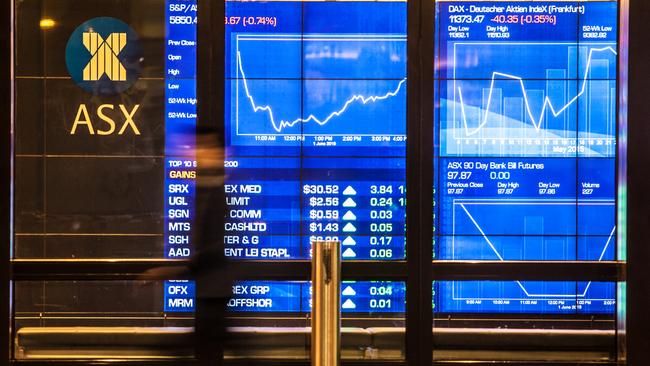Hard lessons ahead for new investors when inexperience leaves them floundering
A flood of new investors have been losing money in a rising market and there could be worse to come.

They’re calling them the next generation or “Robinhood” investors — the flood of first-time investors who have rushed into the market since the March crash.
Five months after that COVID crisis downturn, new Australian sharemarket data shows daily retail turnover is around double what it would normally be, fuelled by a record number of investors opening online share trading accounts for the first time and reactivations of dormant broking accounts.
Herd buying momentum, in some cases inspired by social media forums, has resulted in the share prices of many unlikely companies doubling, tripling and even quadrupling in a short time.
Our market regulator, the Australian Securities & Investments Commission, is concerned on a number of levels and has been contacting broking firms and expressing its concerns.
“We’re concerned with the source of funds (for example, the government stimulus and superannuation), investing motivations and behaviours, the risks with some products and the impact of price runs on the integrity of stock valuations,” ASIC noted in a recent broker presentation. It’s also concerned about the increased use of leveraged products and whether there is enough consumer awareness around the risks they are undertaking.
While ASIC says it is positive that many first-time investors are accessing markets and have made gains, the regulator points out there has been a propensity by retail investors to buy ahead of market declines and sell ahead of rebounds.
“Retail investors are generally bad at market timing. It has moderated since March-April, but the trend continues,” ASIC says.
Over the period from April 6 to June 12, ASIC data shows retail investors who held for just one day recorded $74m in combined net losses, even though the local market increased by 16 per cent over the same time frame.
ASIC found that between February 24 and April 3, heavy net trading activity on one day was often followed by sharp losses the following day.
“For stocks that more than doubled in price since early April (when the index rebounded 16 per cent), there has been a significantly higher concentration of retail trading than the broad market average. The vast majority of these stocks have negative earnings and speculative valuations,” ASIC says. “Despite strong momentum in the short term, significant run-ups, higher valuations and negative earnings mean greater risks over a longer horizon.”
Among the heaviest traded companies have been the so-called “buy now, pay later” stocks, and leveraged negatively correlated exchange-traded products that enable investors to benefit from a declining sharemarket.
Between April 6 and June 12, the share prices of 255 stocks on the Australian Securities Exchange doubled, 70 tripled and 29 quadrupled.
Around 80 per cent of the 255 stocks had negative earnings in the past financial year. The remaining 20 per cent had a high price-earnings (P/E) ratio (average around 55 times). In contrast, the All Ordinaries Index average P/E ratio was 19.
Retail investors represented more than 80 per cent of trading in these stocks (versus 16 per cent across the broader market).
There are various factors that every investor should heed, especially during the COVID-19 environment.
Despite recent gains, the markets remain volatile. Don’t rely on past performance for future investments or invest more than you are willing to lose.
Avoid trying to time the market — that is very hard to do and can lead to losses.
Less liquid or risky shares may fall suddenly in price, and if there are fewer buyers when you want to sell you may not be able sell at a price you would like.
The revenue of many companies has been significantly affected during COVID-19. Past earnings may not be indicative of future earnings and a company’s P/E ratio may not be a reliable indicator. There has been an increase in companies raising capital by issuing new shares. The issues often occur at a discount to the recent share price and may dilute existing shareholders. If you get an offer booklet, consider the impact it will have on your investment.
Focus on longer-term goals and don’t make rash decisions based on recent market falls or gains. Develop an investing plan and stick to it. Educate yourself on the operation and risks of any product before trading.
Don’t rely on claims in advertisements and social media forums when making investment decisions.
Tony Kaye is senior personal finance writer with Vanguard Investments Australia.




